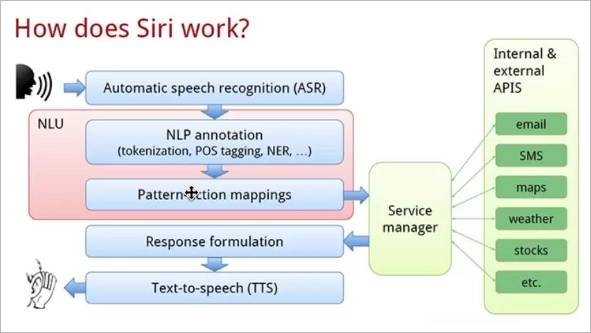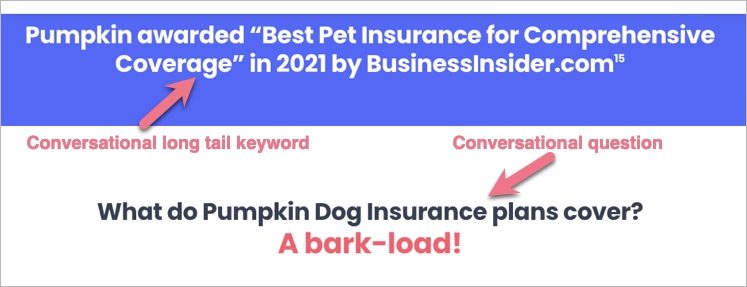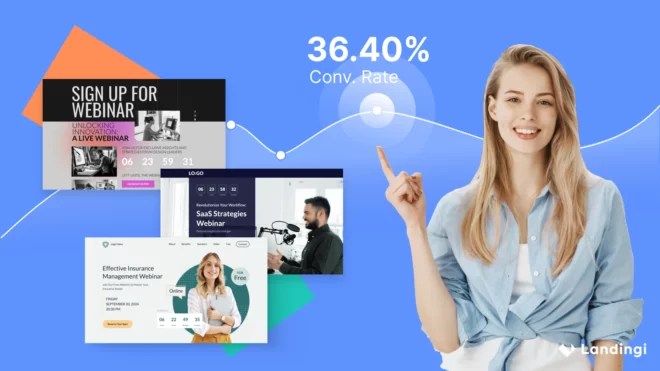The way consumers use the internet has changed wildly over the years. If a young adult today saw how people signed on and surfed the web in the late 90s, they’d pass out.
That’s because the online experience is constantly evolving. And we, as business marketing professionals, can either get with the times and adapt to these new landing page trends or get left in the dust.
If you own a business, you want new customers to be able to find you with an online search. But the way users search has evolved. Voice search has entered the field in a big way. Today’s consumers choose to voice their searches aloud into a mobile device or virtual assistant like Siri, Google Home, or Alexa.
If you’re not taking this into consideration when creating new landing pages, you’re missing a vital step in modern marketing. It’s effectively closing you off from a large percentage of internet users.
But why is voice search so popular? Why do you need it? What are the best practices for voice search optimization in 2024?
Read on to find out.
Make your sections smartable and let go of mundane manual tasks with Smart Sections! An easy way to manage bulk changes.
Why Should You Optimize Your Landing Page for Voice Search?
Voice search isn’t a fad. It’s become an essential part of the online experience and, thus, of Search Engine Optimization (SEO).
People are using voice search now because it’s convenient. AI assistants like Siri and Alexa have become highly efficient at listening accurately and responding to user queries.

If you’re looking for the best Chinese restaurant in your area, you can break out your device and type “Best Chinese food near me” into a Google search.
But it’s easier and more convenient to say, “Hey, Siri, what’s the best Chinese food restaurant in this area?”
Voice search gives users a hands-free, conversational way to find whatever they need. That’s why 80% of smartphone users turn to voice search for quick information and facts.
Simply put, optimizing landing pages for voice search is vital to maintaining operational excellence in 2024.
This optimization tactic involves tailoring content to match the conversational language and tone of voice queries. It also includes factors like incorporating long-tail keywords and applying structured data markup to provide concise and relevant answers.
Achieving operational excellence in this aspect will help your business thrive in the voice-first era of 2024 and beyond.
Get 111 Landing Page Examples—The Ultimate Guide for FREE
Voice Search Optimization Best Practices
In the following sections, we’ll provide actionable advice on how you can optimize your landing page for voice search.
1. Target long-tail keywords and contextual questions
When optimizing for voice search, you must consider long-tail or natural language keywords. That means optimizing for strings of words or phrases a user might say into a device when searching vocally.
Providing direct answers to questions can also be helpful in this regard. Often, voice queries are questions. If you provide an adequate and authoritative answer, your results could pop up first. That’s why question keywords should be a major priority during your keyword research phase.
To stay ahead in 2024, even companies selling industrial tools and machinery are adopting these innovative strategies. They understand the value of making their product pages voice search-friendly.
For instance, Penn Tool Co. recognizes the importance of including concise and informative summaries at the end of each product page. This tactic helps the site cater to voice search queries.

Take its category of lathes, for example. It summarizes all the different types of high-precision lathes offered. Then, it provides answers related to their specifications, features, and applications. Penn Tool Co. includes all the right keywords to match the voice search for any relevant query.
Additionally, the phrase “Industrial lathe machines for metal shaping and woodworking,” is a long-tail keyword that someone might use in a voice search. By optimizing for this relevant term, the company improves its visibility.
2. Weave conversational keywords into your content
One key factor in optimizing your landing page for voice search is to use natural language and a conversational tone. You need to write in a way that your average target customer speaks.
Voice queries are usually longer and more specific than text queries. Therefore, you must anticipate the questions and intents of your target audience.
For example, if you offer dog health insurance, you might want to include a section on your landing page that answers common questions like:
- “What does dog health insurance cover?”
- “How much does dog health insurance cost?”
- “How can I compare dog health insurance plans?”
These are all common conversational questions that someone might pose to a service like Siri or Alexa. That means you need to be ready for these conversational searches.
You can also use testimonials, case studies, or statistics to showcase the benefits and value of your service.

For instance, check out how Pumpkin makes sure to point out that it was awarded “Best Pet Insurance for Comprehensive Coverage” in 2021 by BusinessInsider.com. That gives it authority when someone says “what’s the best pet insurance for comprehensive coverage?” into a voice search platform.
3. Go for Google featured snippets
Google’s featured snippets are short blurbs that give a quick answer to a question. They appear in the coveted “position zero” atop the SERP, appearing before the number one result.
For voice search, featured snippets are usually the answers pulled by bots like Siri, Google Home Nest, and Alexa. By ranking for these crucial terms, you’ll be able to have the trusted voice of our biggest virtual assistants read your content aloud.
4. Focus on local SEO
When users search with their voices, they typically look for something local. Our example above about finding the best Chinese food restaurant in a specific area springs to mind.
That means you should have a solid local SEO focus when optimizing your landing page.
Local SEO includes steps like:
- Making sure your Name, Address, and Phone number (NAP) are consistent on your business listing and in all other locations;
- Getting listed in local directories (with your correct NAP);
- Claiming your Google Business contextual (Google My Business) page;
- Incorporating local keywords, and more.
5. Optimize your page for mobile devices
Most voice searches are on mobile devices. That means you need to optimize your landing pages for mobile users.
Of course, this was something you should have already been doing. More than half of all internet activity now occurs on mobile smart devices. That means mobile optimization has become just as important, if not more, than traditional searches on desktops.
6. Don’t ignore technical SEO and accessibility
Optimizing your landing page for voice search is similar to making it accessible and ADA-compliant. That means, besides using clear and concise language, you provide alternative text for images and use a consistent hierarchy of headings.
It also means using schema markup to provide additional information to the search engine. This structured data is invisible to readers, but it can tell a search engine about your business. This includes valuable data like your hours of operation, address, review score, and more.
7. Learn how your audience talks
If you’re going to optimize your site for voice, you’ll need to learn how your target audience speaks and the intent behind their searches.
One of the ways to optimize your landing page for voice search is to use natural language processing (NLP). It can help you understand the intent and context of visitors.
NLP is a branch of artificial intelligence that enables machines to analyze and generate human language. By using NLP, you can create more relevant and personalized content for your audience and improve your site’s performance and ranking.
For example, AI analytics can help you leverage NLP to turn your data into insights and actions without requiring coding or complex queries. With AI analytics, you can ask questions in natural language and get contextual answers through charts, graphs, or narratives.
This way, you can optimize your landing page based on data-driven insights and deliver a better user experience for voice searchers. The better you understand your target audience, the better you’ll be able to cater to them in their own words.
Optimize Your Landing Pages with Landingi
Voice search is here to stay. It’s a contextual hands-free search that users worldwide are flocking to. If you want to guarantee you’re catching the influx of voice-based mobile searches, follow the advice listed above.
By optimizing content for voice searches, you’ll create high-converting landing pages that generate bountiful profits.
In Landingi you have at your fingertips a bunch of tools and features for content optimization. From AI-powered SEO and copy generation across the A/B testing to advanced micro conversion data tracking and analysis with Event Tracker – all of this provides a solid ground for your marketing decisions, including those on content for your pages.








